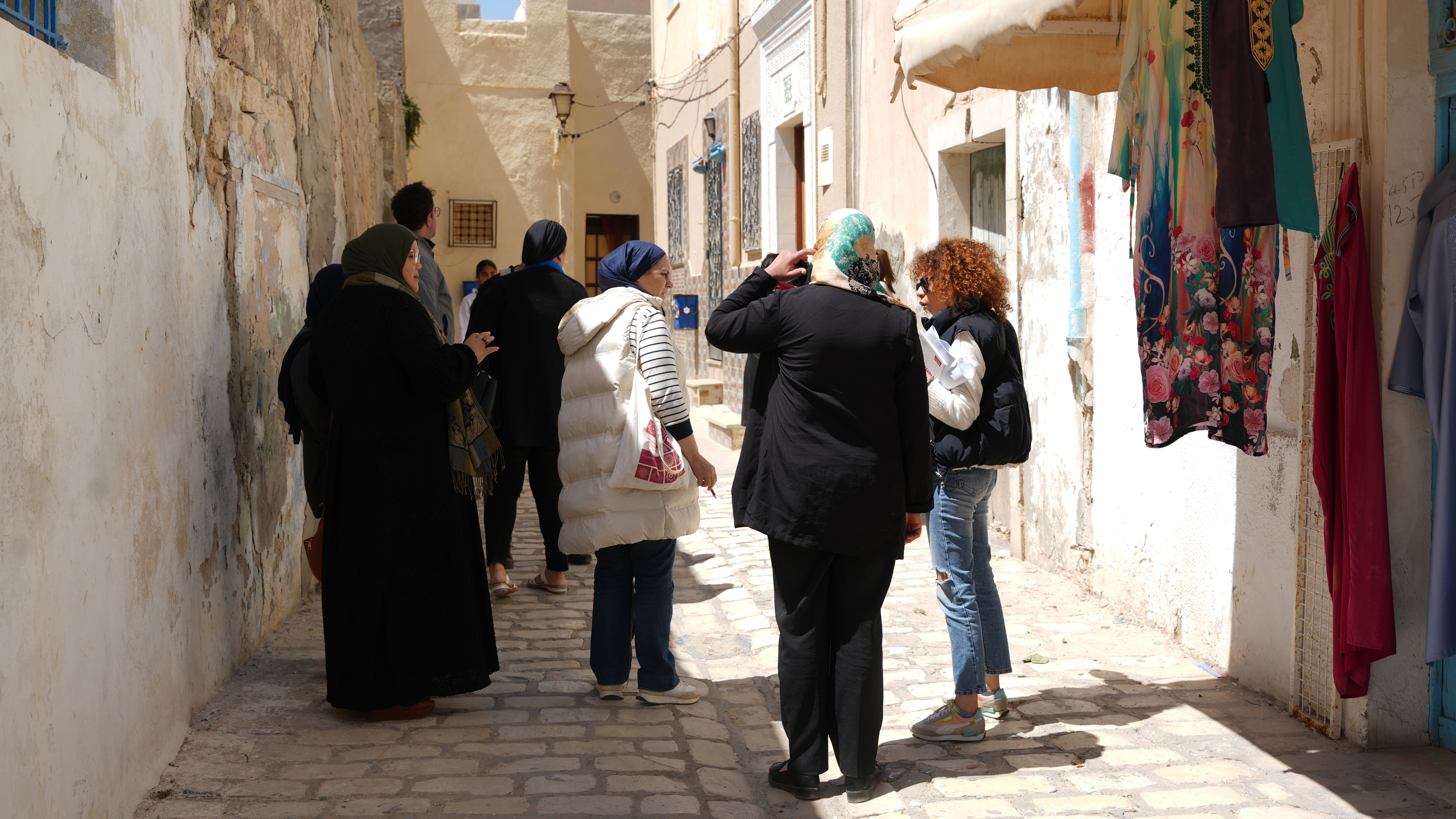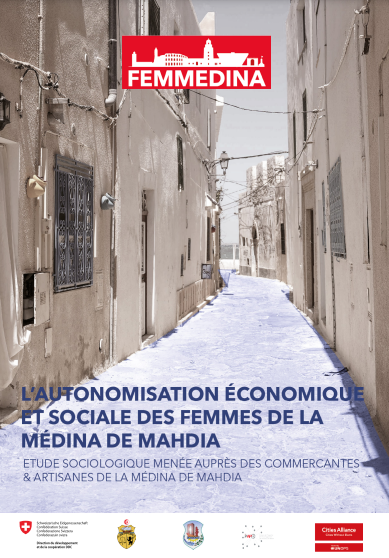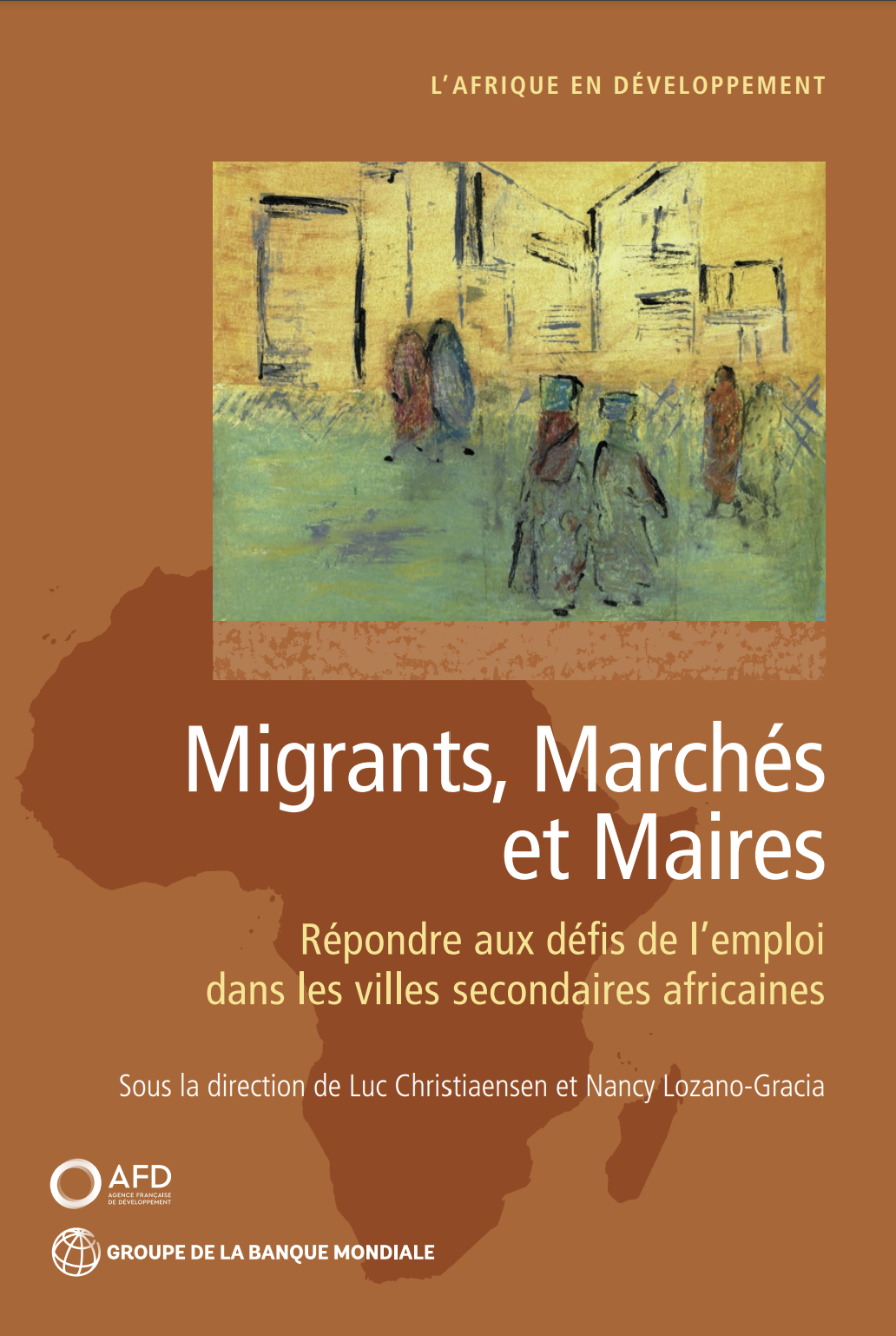- Who We Are
- How We Work
- Regional / Country Initiatives
- Legacy
- Core Themes
- Working Groups
- Portfolio & Results
- Newsroom
- Resources
Mahdia: Gender-Sensitive Urban Rehabilitation in Borj Erras

Within the framework of the Femmedina Programme supported by Swiss Agency for Development and Cooperation, the analysis report summarises the findings on women's needs and participation in the Borj Erras neighbourhood, in Mahdia in Tunisia.
In the fabric of urban life, the inclusion of women is not just a question of equity and representation. It is also, and above all, a fundamental prerequisite for creating prosperous, sustainable communities. Urban planning and consultation processes must actively involve women to ensure that the diverse needs, experiences and perspectives of all community members are taken into account and addressed.
Mahdia, a secondary city on the Tunisian seaside, is renowned for its beautiful beaches and historical sites. The city features various public spaces, including the corniche and Youth Park, though their maintenance is uneven. Generally, Mahdia is considered safe for women, and access to public spaces is fairly equal. However, there is a need for gender-sensitive urban planning to ensure the safety and inclusion of women.
Cities Alliance conducted surveys, interviews, focus groups and co-creation workshops with local women for the rehabilitation of the souk neighbourhood to draw recommendations for gender-sensitive urban development.

Key Points of the Report:
- Economic Participation and Engagement: Women in the Medina, and particularly market traders at the "Skifa Kahla" souk, are crucial to the local economy. They are active in sectors such as jewellery, traditional clothing sales, crafts, and weaving, playing a vital role in the city's economic dynamics.
- Use of Public Spaces: Female presence is mainly concentrated at the entrance of the Medina on market days, along the main commercial streets. However, their presence is limited in residential alleys and almost non-existent in certain strategic public spaces like the Arts Garden.
- Women's Engagement Evaluation (WEC Profile): Women expressed overall satisfaction with their engagement in the neighbourhood, scoring high for mobility, democratic participation, safety, and career opportunities. However, they noted gaps in local cultural and technological policies.
- Recommendations: The report recommends specific improvements in urban planning to enhance women's safety and increased efforts for their involvement in urban governance and support of their economic activities.
Through its action in the cities of Sousse, Mahdia, Msaken and Kairouan, the Femmedina project proposes recommendations for a gender-sensitive urban planning in Tunisia. Urban planning processes must actively seek out and amplify the voices of women from diverse backgrounds, ensuring that their perspectives are taken into account in shaping the future of cities. Only in this way can we create truly inclusive, dynamic and sustainable urban environments for all.


